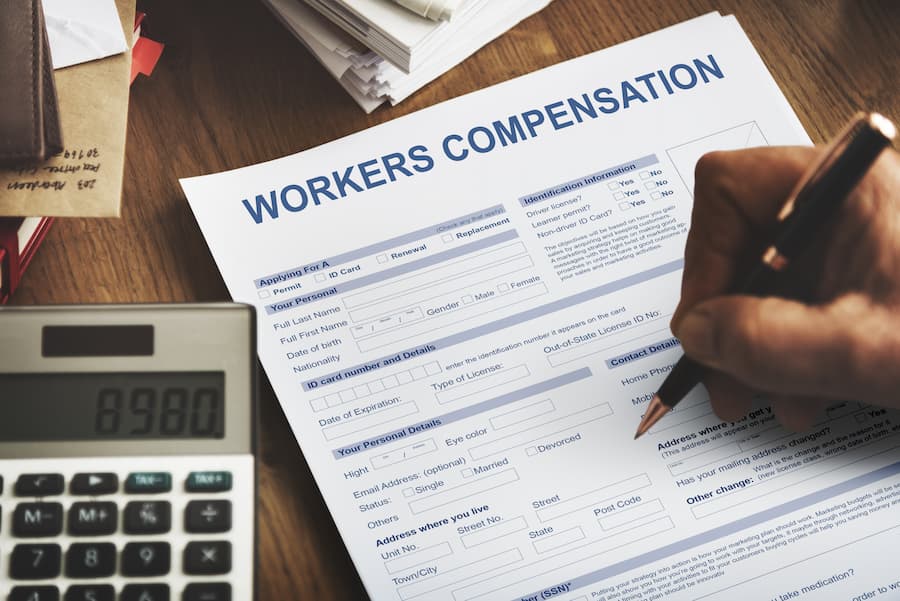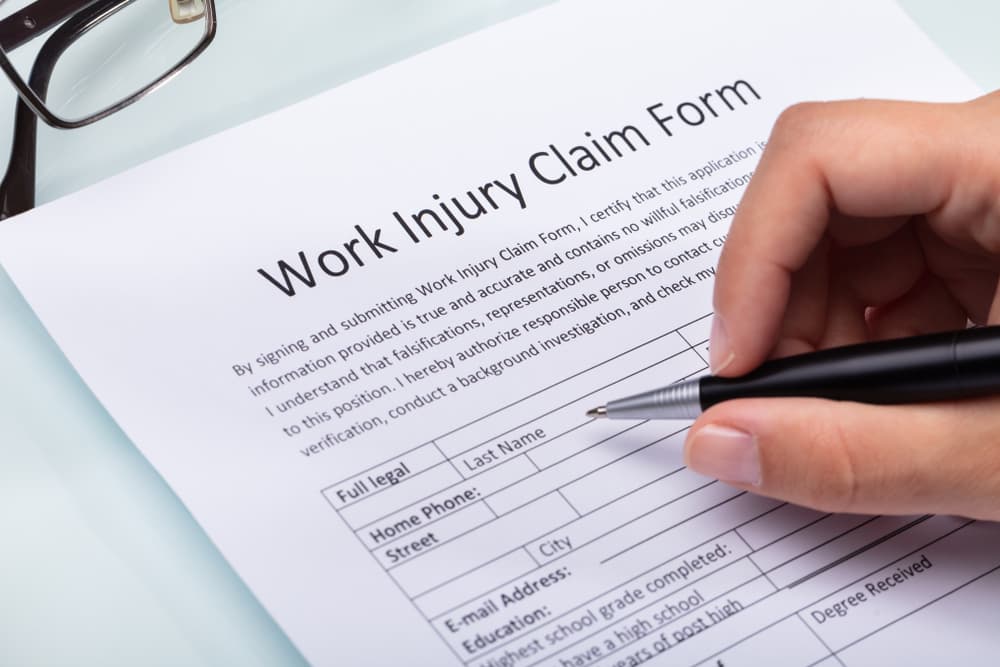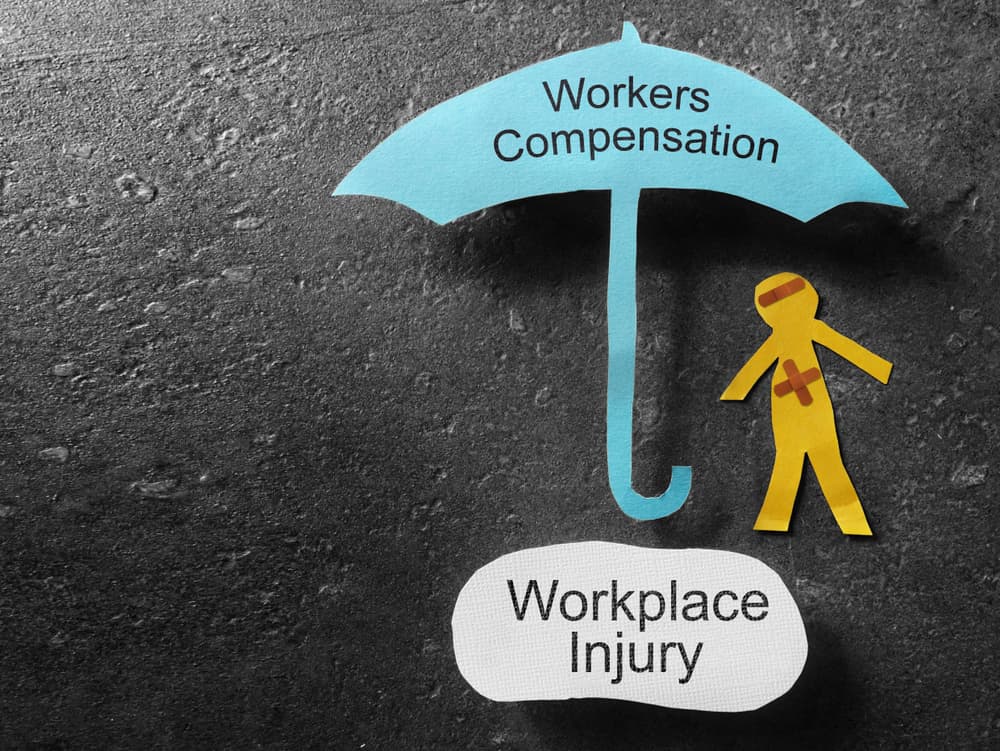South Carolina requires businesses with four or more employees to provide no-fault insurance coverage for work-related injuries or illnesses. Workers' compensation typically pays for the employee's medical costs and makes payments to replace two-thirds of the income they lost due to missing work. Reach out to a workers compensation lawyer.
These benefits provide a lifeline for workers who get hurt on the job and face financial uncertainty. Unfortunately, workers' compensation may deny or under-compensate valid claims, leaving injured employees in a very stressful and vulnerable position. This situation can happen due to administrative errors with your paperwork or not providing the right medical evidence.
If you received an unfavorable decision after applying for workers' comp benefits, it's not the end of the road. Injured workers may appeal to the Workers' Compensation Commission of South Carolina (SCWCC) and get a better outcome.
With the right guidance and legal strategy, you will strengthen your compensation claim and chance of approval for the financial support you'll need to recover from work-related injuries.
Common Reasons Workers' Comp Claims Are Denied In South Carolina

While workers' compensation insurance coverage is a legal right, the administrators of these programs are trained to reject or undervalue claims to cut costs and maximize profits.
Unfortunately, many legitimate claims will be affected by this strategy, especially claimants who aren't familiar with how to navigate the legal process. Some of the most common reasons workers' comp claims get denied in South Carolina include the following:
Errors on the Application
The paperwork to file for workers' compensation requires detailed forms asking for a lot of information about the incident, the claimant's treatments, and many other administrative details. Your insurer will likely flag any missing, incorrect, or inconsistent information and reject your claim.
Doubts About the Injury's Seriousness
The arguments for this denial are generally either that the employee's injuries weren't serious enough to require medical treatment or that they can still work. This is one of the most common reasons for insurance providers to deny coverage and also one of the most frustrating for workers dealing with serious covered injuries.
Countering these denials would generally depend on gathering more persuasive medical evidence that properly documents the severity of your injuries and their impact on your ability to work.
Missed Deadlines
Several strict deadlines are involved in the workers' comp application process, beginning with employees needing to notify their company of an injury within 90 days to be eligible for coverage. They also have to file their claim for benefits within two years of getting injured or risk getting an automatic denial without the insurer even considering the case's merits.
Injuries May Not be Work-Related
To be eligible for workers' comp, the injuries must have happened within the scope of the employee's job responsibility. If the insurer chooses to dispute this basic element of the claim, it's important to provide more documentation about how you got hurt, such as incident reports or witness statements, if those are available.
You can also support your case with testimony from medical professionals linking how your injuries resulted from work, as is often necessary for injuries that happen over an extended period. For example, an employee with heavy typing duties might develop a repetitive stress injury like carpal tunnel syndrome.
Misclassification of Employee as Independent Contractor
Employers in some industries, such as construction, have been known to misclassify workers as independent contractors as part of a strategy to avoid providing workers' comp. If you get injured and then discover that you've been misclassified in this way, you may face hurdles when claiming benefits.
To successfully appeal these kinds of denials, you must demonstrate that you were functioning as an employee, not as an independent contractor. An experienced lawyer can gather evidence to establish your status, like pay stubs and proof that your employer exercised a certain amount of control over your work.
Substance Use
Workers' comp benefits in South Carolina are provided under no-fault insurance, which typically means employees don't have to establish that their injuries were related to workplace negligence. However, it also means that workers may receive benefits even if they caused their injuries through error.
The major exception to this clause would be cases of extreme recklessness, such as when the worker gets injured due to being under the influence of drugs or alcohol. This is why employers often test workers for substances soon after an incident that resulted in injuries. An experienced legal professional can help you explore your best options for defending against these challenging denials.
The Steps Involved in Appealing a Workers' Comp Claim Decision In South Carolina
The South Carolina Workers' Compensation Commission (SCWCC) plays a critical role in overseeing the claims process for all workplace injuries and illnesses in the state, as well as providing a structured appeals process.You can request a reconsideration hearing for a denied or undervalued claim, bring in additional evidence to support the validity of your case, and change the initial decision.
The appeals process actually has several levels and could extend all the way up to the South Carolina Supreme Court, depending on how your case progresses. At each stage, you may present evidence and make legal arguments to support your claim.
Step 1: Request a Hearing
The first step is formally requesting a hearing with the SCWCC by filling out paperwork detailing why you believe your claim should be reconsidered.
After receiving notice of your hearing, you may need to submit Form 58, also known as the pre-hearing brief, which summarizes your arguments for disputing the decision and lists all your evidence. This document forms the basis for your appeal, so have an experienced workers' comp lawyer prepare it for you, ensuring it contains accurate, legally sound, and has persuasive reasons to resolve the case in your favor.
Step 2: Hearing with a Commissioner
The hearing to review your case is similar to a court trial, although not as formal, and a Commissioner for the SCWCC acts as a judge. The claimant and insurance company can present their evidence, make legal arguments, and examine or cross-examine witnesses.
A legal professional can present your case as effectively as possible at the hearing and all other legal proceedings. The commissioner will review all the arguments and mail the claimants a written explanation of the appeal's outcome.
Step 3: Appealing the Commissioner's Decision
If the commissioner's decision doesn't go your way, you can continue the appeal process by requesting a review from the Full Commission, which has seven members. There can't be any new evidence submitted at this stage, but your lawyer can submit a brief and make oral arguments on your behalf.
The Full Commission will decide based on the records of the initial hearing, which underscores why you need a strong case from the beginning of your appeal.
Step 4: Appealing to the Court of Appeals
This is the next opportunity to escalate your workers' compensation claim appeal and potentially get a different decision. However, again, claimants could not introduce new facts or evidence. The Court of Appeals will evaluate any errors made during previous decisions that should be the basis for changing the outcome.
Step 5: Appealing to the South Carolina Supreme Court
The last resort in the appeals process is to request for your case to be reviewed by the South Carolina Supreme Court. However, workers' compensation claims rarely reach this stage. The SC Supreme Court would only agree to hear your case if it identifies significant legal issues with the earlier decisions.
How a Lawyer Can Help You Appeal a Denied Workers' Comp Claim
When you're dealing with the physical, emotional, and financial aftermath of a serious workplace injury, having your workers' compensation claim denied is incredibly discouraging. Being able to successfully overturn this decision will often depend on gathering more evidence and navigating the complexities of the appeals process.
A workers' compensation lawyer with knowledge of South Carolina's system can secure the benefits you deserve during a difficult time. Some of the ways an attorney can look out for your best interest when appealing a denied workers' comp claim include:
Managing Paperwork and Legal Proceedings
Many of the challenges of applying for workers' compensation are due to the complex paperwork required for each stage, especially when you're under scrutiny throughout the appeals process. Having a lawyer handle this ensures your paperwork is correct, preventing technical errors from causing further setbacks. Your lawyer can also make sure you won't miss any important deadlines.
Gather Medical Evidence To Support Your Case
It's hard to overstate the importance of well-prepared medical evidence when it comes to appealing a workers' comp denial because the insurer often disputes them. After all, injured workers may receive these benefits under South Carolina law as long as they were hurt on the job and couldn't perform their work duties for a certain period. Therefore, insurers cannot easily reject a claim that meets these basic requirements.
Overturning a denial made on medical grounds depends on gathering more records to substantiate the nature and severity of your injuries, the timeline for recovering, and the injury's impact on your ability to work.
An experienced workers' comp lawyer will know the evidence required to counter doubts about their client's physical limitations as effectively as possible, including the argument that they're not work-related. This may include arranging for additional diagnostic tests or collaborating with medical specialists to provide testimony substantiating your claim.
Provide Effective Representation at SCWCC Hearings
Given the high stakes involved when requesting a hearing to have your claim reconsidered by the SCWCC, having effective legal representation during the proceedings can significantly impact the outcome of your case.
The insurance company that denied your claim will have a lawyer at the hearing defending their decision to reject or undervalue your application for benefits, which is a scenario most people find stressful and intimidating. An attorney familiar with workers' compensation laws can advocate for you and address the specific reasons your claim was denied using evidence.
Protect Your Legal Rights After Being Denied Workers' Compensation in South Carolina

When facing the challenge of a denied workers' compensation claim in South Carolina, it's crucial to remember that you have a viable legal recourse for securing the benefits you need, especially with the right guidance. Reach out to a personal injury lawyer.
Denials often stem from not knowing how to navigate the application process rather than lacking a valid claim or not deserving this crucial financial support. An experienced lawyer can handle every aspect of your appeal, from filling out paperwork to gathering and presenting medical evidence. With a skilled legal professional by your side, you place your case in the strongest position to receive a favorable decision.







